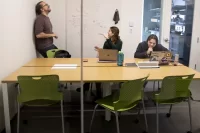
Malcolm Hill will step down as dean of the faculty and vice president for academic affairs on June 30, 2025, announced Bates President Garry W. Jenkins on Monday.
Hill, a tenured biology professor at Bates and widely published scholar on the evolutionary ecology of marine invertebrates, will return to the Bates classroom in fall 2026 after a sabbatical in the 2025-26 academic year.
Hill, who joined Bates in 2018, is the architect of significant academic innovations that have strengthened the college and its national reputation while expanding support for student and faculty success, said Jenkins.
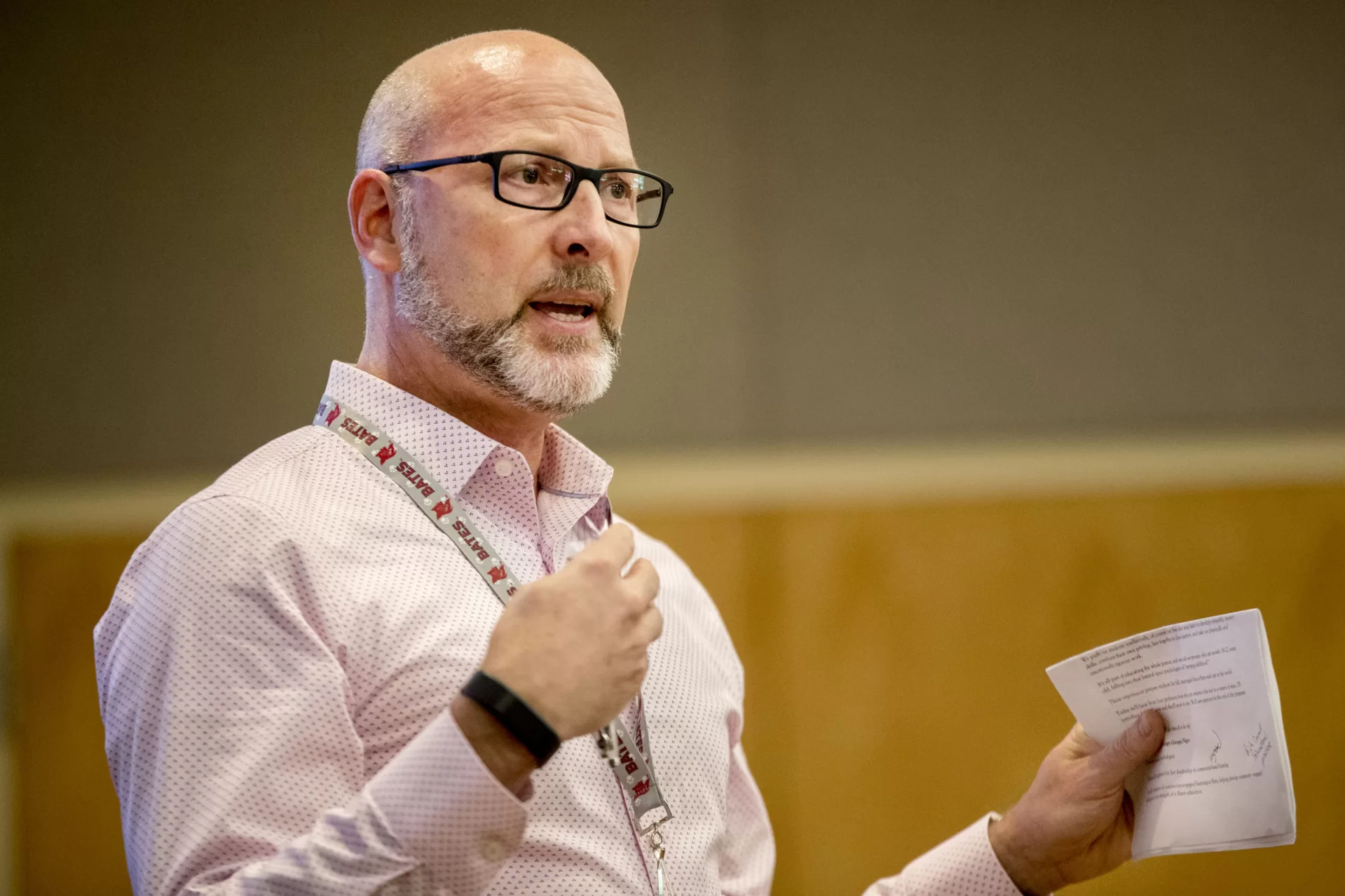
“I am extraordinarily grateful for all that Malcolm has done for our college. I am so appreciative of his deep commitment to his work, to our faculty and students, and to our collaborative efforts as a senior leadership team. Malcolm’s work has profoundly shaped our academic programs and strengthened the college’s position as a national leader in the liberal arts and sciences, and his dedication to advancing inclusive, equity-driven, and innovative best practices has left an indelible mark on our graduates and our college.”
Jenkins added, “During the pandemic, under pressure and uncertainty, Malcolm worked with faculty and senior staff colleagues to help lead this college through unprecedented challenges, modeling values of collaboration and resilience. Malcolm has been a terrific partner these past 14 months, and I look forward to continuing to work closely with him for the remainder of the year. We are excited to see him return to his research and teaching and to continue contributing to our students’ and to Bates’ academic excellence.”
In his announcement, Jenkins said that the college will develop and announce plans for a search for Hill’s successor later in the fall after broad consultation with the Bates community.
As a member of the college’s senior administrative team and chief academic officer, Hill holds leadership responsibilities in the areas of curriculum and academic initiatives; faculty recruitment, review, tenure and promotion; and nurturing faculty career development in the arenas of instruction, scholarship, and community engagement. Hill’s office oversees the Registrar, the Harward Center for Community Partnerships, the Bates Dance Festival, the Museum of Art, and the Office of Sponsored Programs and Research Compliance.
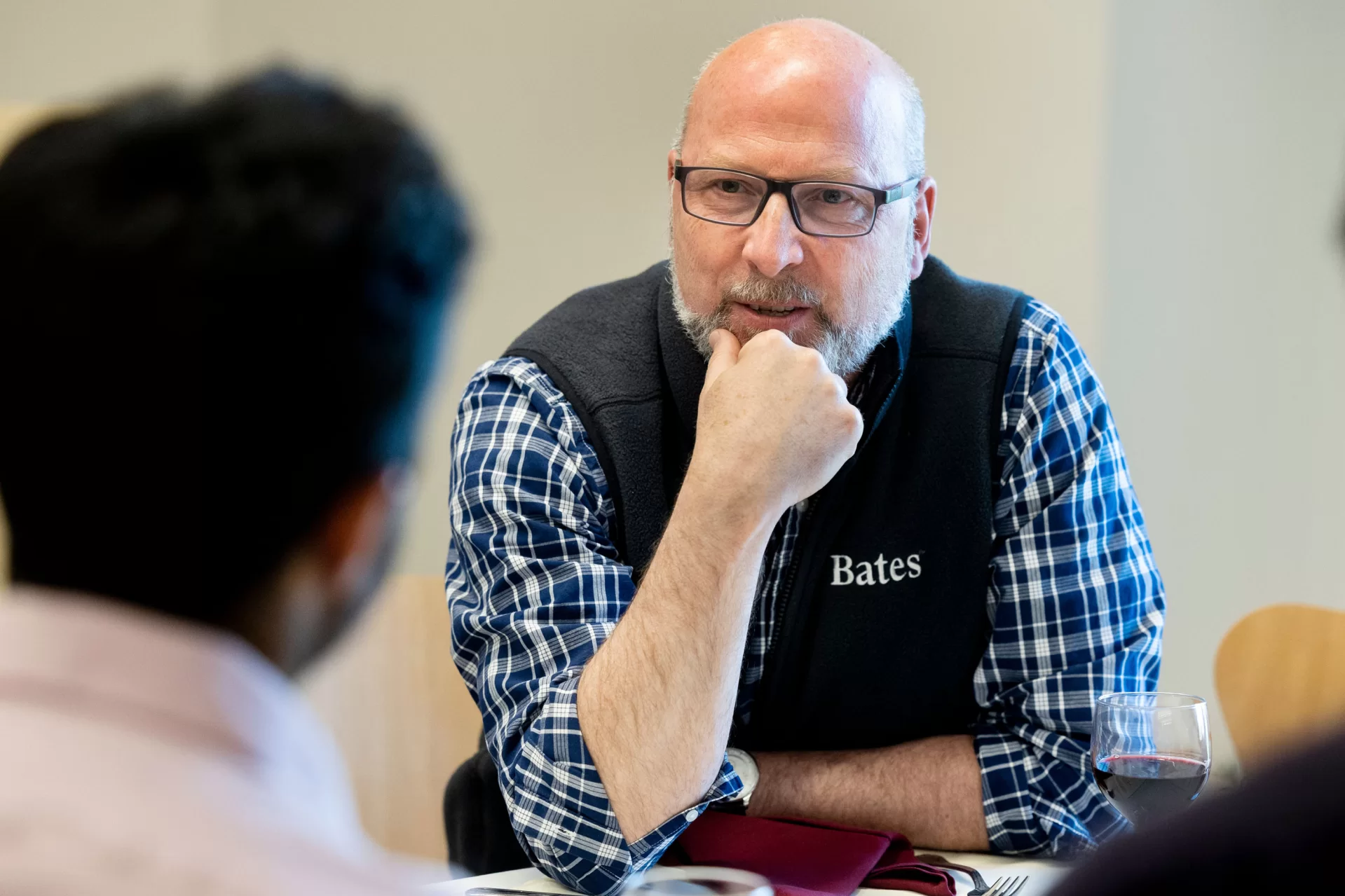
Under Hill’s leadership, Bates has made remarkable progress in embedding equity and inclusion into its academic fabric, enhancing both faculty and student success.
“I am proud of the strides that Bates has made to strengthen and expand opportunities for student success at Bates and how we have supported faculty in developing the tools to be effective in their work,” said Hill. “I am particularly proud of our progress in embedding equity and inclusion into the academic fabric of Bates, a firm foundation that will continue to support our community for years to come.”
He added, “I am exceedingly grateful to the Bates faculty for their amazing capacity to fully engage not only in their teaching and in their scholarly and creative work, but in the behind-the-scenes work as advocates for the quality and integrity of our academic programs. I am indebted to our faculty for their embrace of institutional goals and their willingness to collaborate for the betterment of our students’ academic experience.”
Over a two-year period ending in 2021, Hill provided leadership support for substantial modernization and improvement to the process for faculty reappointment, tenure, and promotion. During Hill’s tenure, criteria that define faculty excellence have been strengthened and now incorporate equity and inclusion in essential ways.
To support the faculty’s professional development in this area, Hill advocated for, and helped establish in 2022, the Center for Inclusive Teaching and Learning. The new center introduces current research findings and modern approaches to help faculty and staff educators develop and refine professional, reflective, innovative, and inclusive pedagogies.
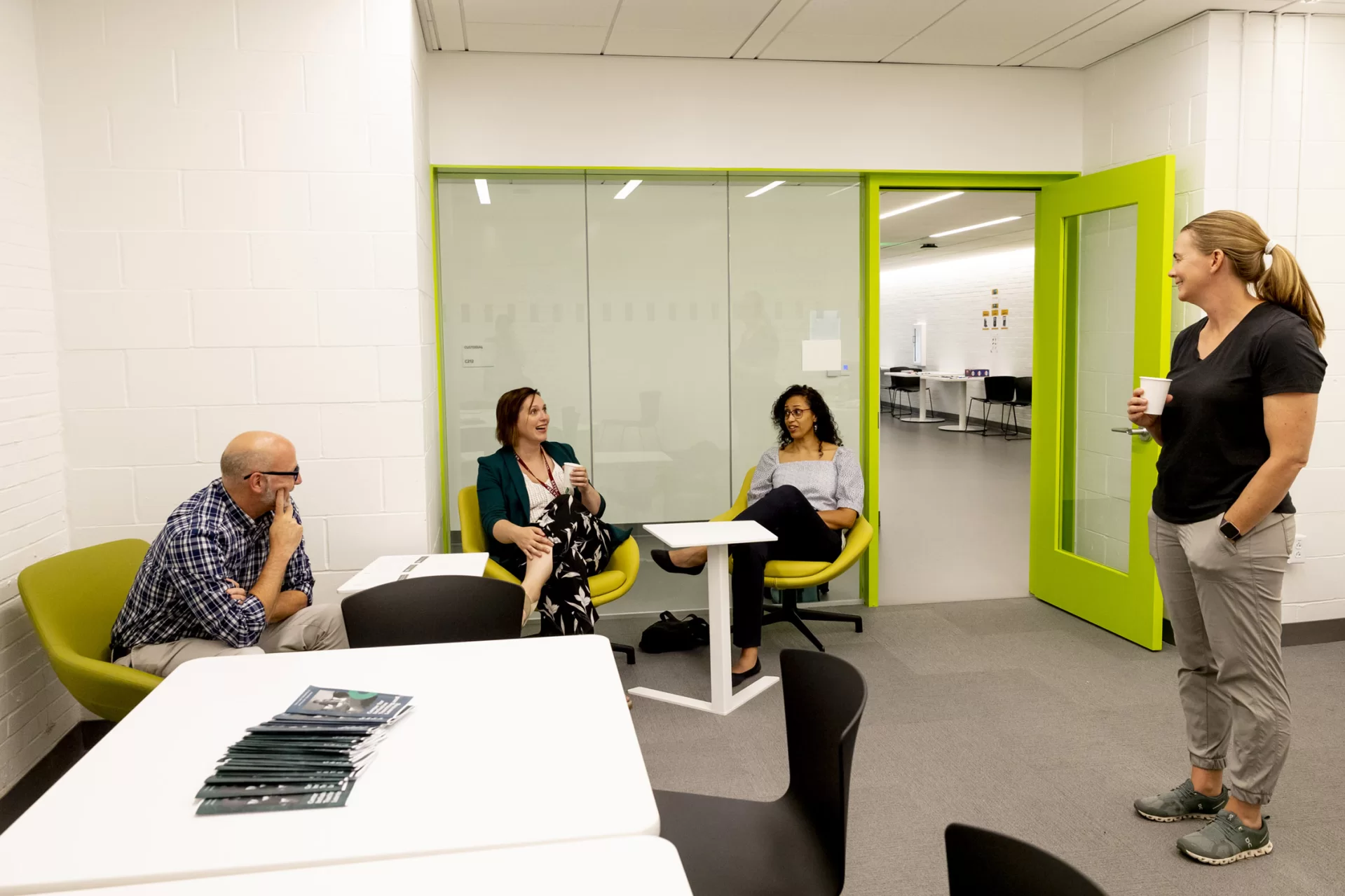
A year later, Bates completed a comprehensive reorganization and expansion of its academic student support programs, resulting in two new centers, the Student Academic Support Center and the Student Writing and Language Center. Located in the new Peer Learning Commons space on the ground floor of Ladd Library, the centers have streamlined resources and enhanced peer tutoring across disciplines.
This achievement reflected a larger success in improving student advising, including major improvements to the management of the First-Year Seminar program so students retain their pre-major advisor through their first two years.
Other transformational efforts to energize and inspire teaching and research include facility investments exceeding $75 million in state-of-the-art spaces including Bonney Science Center, renovations to Dana Chemistry Hall, and improvements to Carnegie Science Hall. By the time Hill leaves the office, the college will have hired more than 75 new permanent faculty colleagues across all academic divisions. Hill’s work to achieve a net increase in the size of the faculty through the addition of eight new tenure-track faculty lines represents an important investment in the academic enterprise.
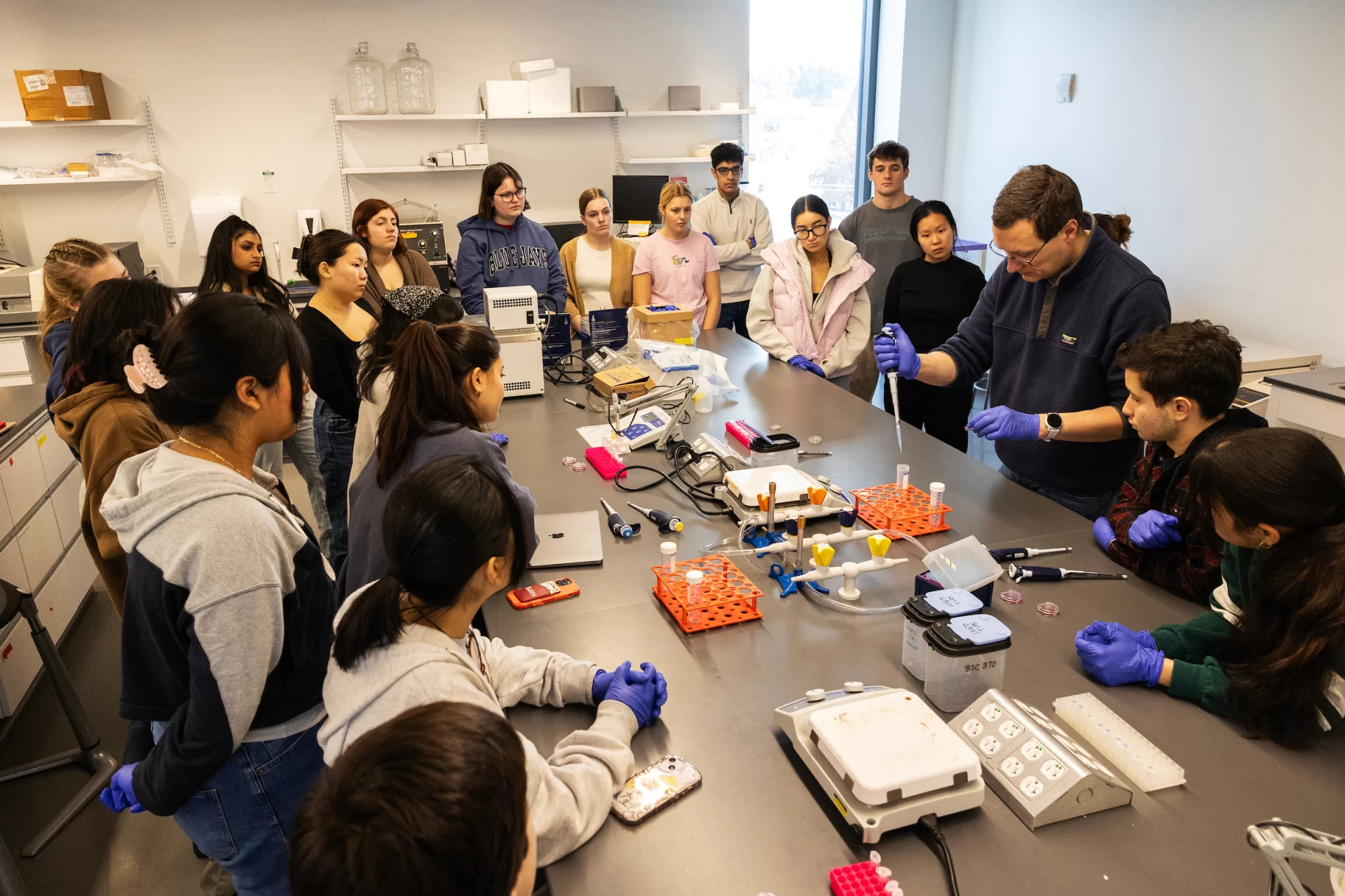
In April 2023, the faculty approved a new general education requirement to engage students with issues of race, power, privilege, and colonialism. Student advocacy, faculty collaboration, and institutional commitment ensured that Bates students will be equipped to understand the history and legacies of racism, and prepared to address systemic inequities in the world. To support ongoing curricular discussions, Hill called upon the faculty to engage in Foundational Dialogues, a structured platform for ongoing, critical conversations to promote thoughtful engagement across disciplines, foster collaborative learning, and guide the faculty toward continuous academic improvement.
Through a 2018 grant from the Howard Hughes Medical Institute’s Inclusive Excellence Initiative, Bates faculty have adopted new curricula and pedagogical approaches in STEM that have yielded dramatic results in improved retention outcomes for all students and particularly within the college’s Black and Hispanic students. In addition, the Mellon Curricular Grants project has brought a focus to the faculty’s capacity to teach and mentor a diverse student population in the humanities and humanistic social sciences.
While serving as dean, Hill kept his hand in the classroom and research. In recent years, he has taught courses in evolutionary biology and biostatistics, as well as a First-Year Seminar, guiding students in the college’s equity-driven STEM Scholars program that was developed through the HHMI grant.
Hill joined Bates from the University of Richmond, where he was the Clarence E. Denoon Jr. Professor of Science and held leadership roles in the School of Arts and Sciences. He received a bachelor’s degree in biology and environmental science from Colby College and a doctorate in evolutionary ecology from the University of Houston.




